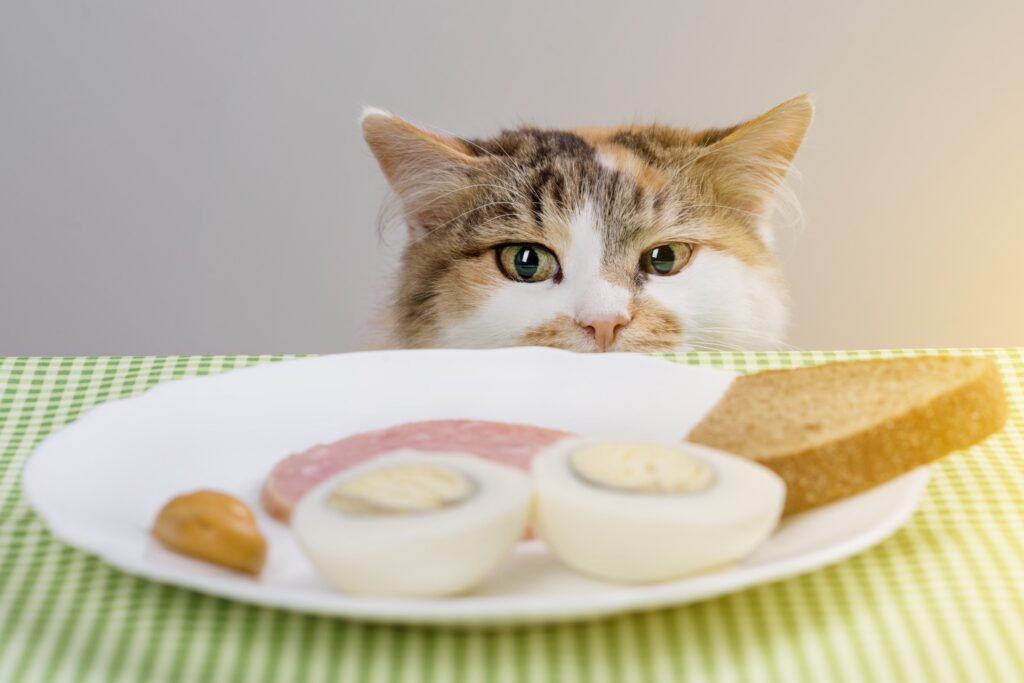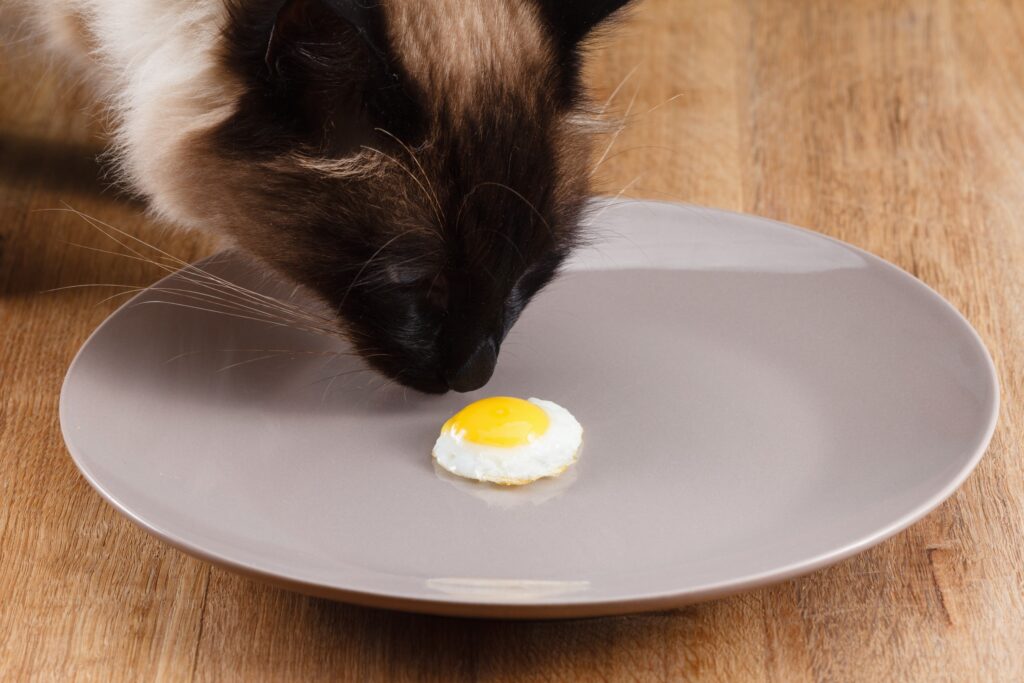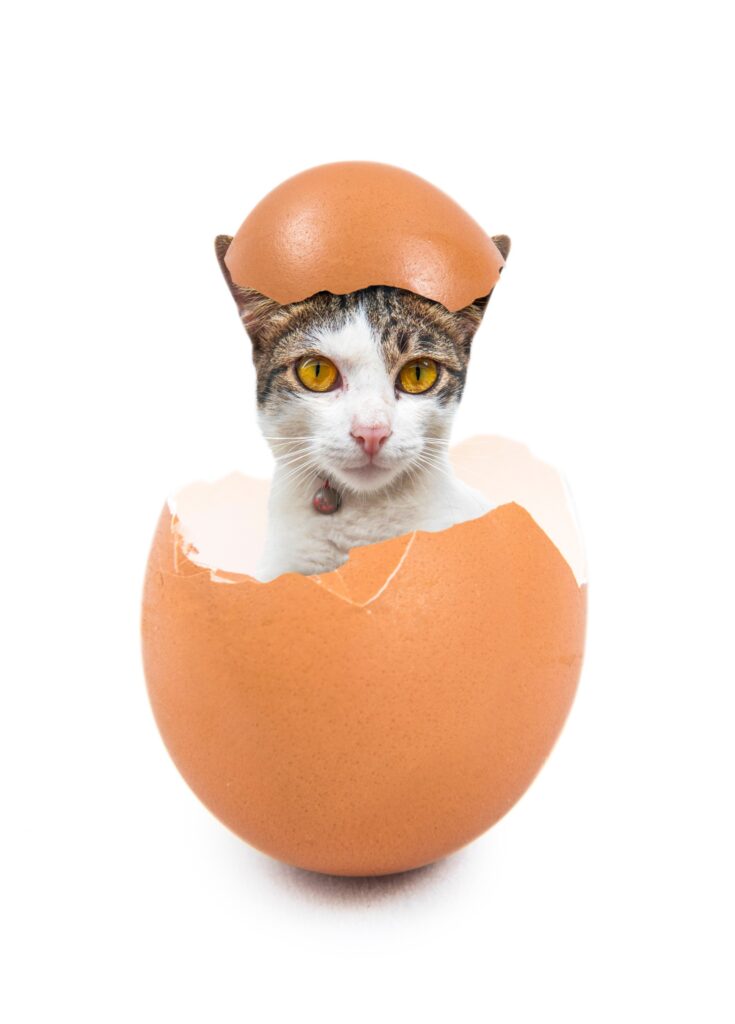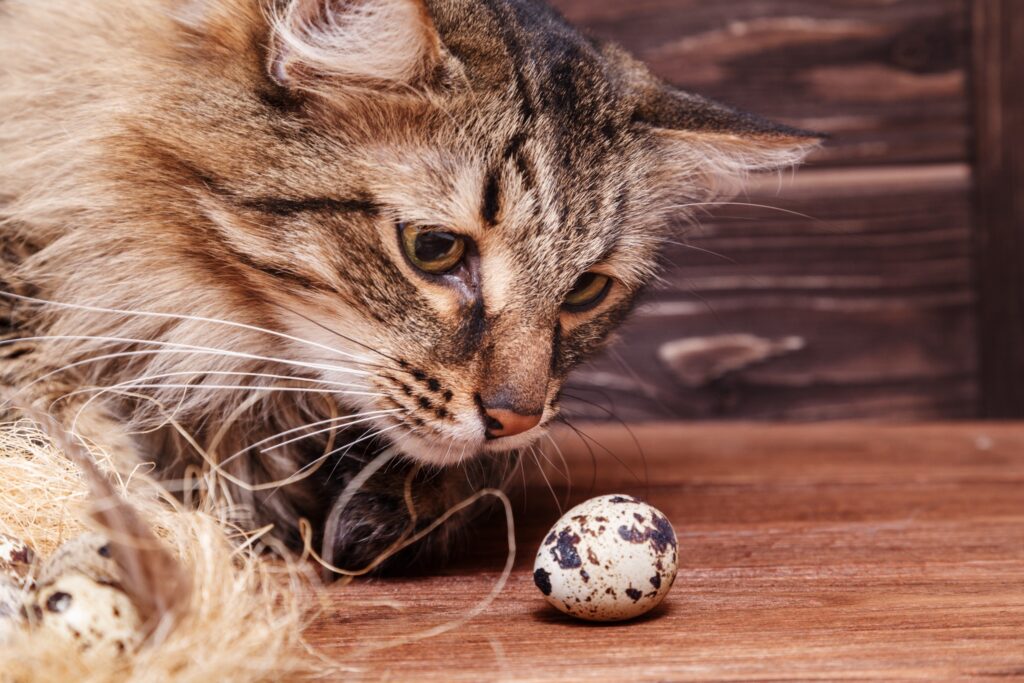When it comes to feeding our feline friends, pet owners often question the safety and nutrition of different human foods, like eggs. Can cats eat eggs, or should eggs be avoided altogether?
Cats, being obligate carnivores, have unique dietary requirements different from humans and other pets, so it’s important that cat parents understand what is and isn’t appropriate food for their pets.
This article explores if eggs can be included in a cat’s diet, why the fact that cats are obligate carnivores is an important piece of this puzzle, and the proper way to add eggs to their feeding routine.

The Nature of Obligate Carnivores
Cats are classified as obligate carnivores, meaning their survival depends on nutrients found in animal flesh.
Unlike omnivores or facultative carnivores, cats have evolved with a digestive system that optimally processes proteins and fats from animal sources.
This evolutionary trait dictates that their diet should primarily consist of meat to obtain essential nutrients such as taurine, arachidonic acid, and vitamin A, which they cannot synthesize in sufficient quantities from plant-based sources.
Can Cats Eat Eggs?
Eggs are a powerhouse of nutrition, packed with high-quality protein, fatty acids, vitamins, and minerals, making them an excellent supplemental food for cats.
However, cat owners need to understand how and how much to feed to avoid any health issues.
- Protein Quality: The protein in eggs is highly digestible and contains all the essential amino acids, making it an excellent supplement to a cat’s diet.
- Fat Content: Eggs also provide healthy fats and fatty acids, beneficial for a cat’s skin and coat health.
- Vitamins and Minerals: They are rich in vitamins such as A, B, and D, and minerals like selenium and iodine, which are vital for various bodily functions in cats.
However, despite these benefits, eggs should not constitute the main part of a cat’s diet but rather be considered a supplement or treat.

How Big of a Part Should Eggs Be in Their Diet?
Considering cats’ specific nutritional needs as obligate carnivores, eggs should only be a small portion of their overall diet. Here are a few guidelines:
- Moderation is Key: Eggs should be given as a treat or supplement, not as a daily food item. A few pieces of cooked egg once or twice a week are generally considered safe for healthy cats.
- Cooked, Not Raw: Always serve eggs cooked (boiled or scrambled without any added salt, spices, or fat) to avoid the risk of salmonella and reduce the risk of biotin deficiency caused by avidin, a protein in raw egg whites.
- Consult with a Vet: If your cat has specific health issues or dietary needs, always consult with a veterinarian before changing anything in their diet, including even the occasional treat.
Final Thoughts
While eggs can indeed be a nutritious addition to a cat’s diet, it’s important to remember that cats are obligate carnivores and the importance of a meat-based diet.
Eggs should be treated as a supplement, not a staple, ensuring that your feline friend enjoys a balanced and healthful diet.
As always, when in doubt, consult with a veterinary professional to tailor dietary choices to your cat’s unique health profile and nutritional requirements
References
- Feline Nutrition Update
- Herbivores, Omnivores, and Carnivores
- Egg Nutrition
- Biotin Deficiency in the Cat

Image credit: All images are used under license or with permission]

